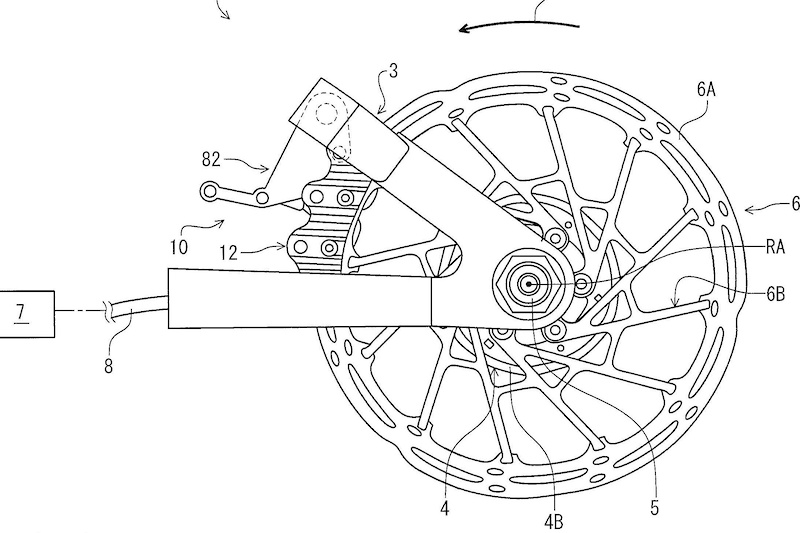What is clear is that Shimano are working on a more powerful brake for mountain bikes. More pistons means more powerful braking. It could also translate to better heat management, and thus improved consistency. Improvements like that could give top DH and enduro athletes the edge, but all riders stand to benefit. Perhaps very heavy riders, or those riding very heavy e-bikes, or those smashing out full runs in the bike park, stand to benefit most from the additional stopping power offered by a 6-piston caliper.
The only production 6-piston caliper for MTB right now is the Juin GTP-6. It’s effectiveness in applications like DH will be greatly limited by the fact that, while the pistons are pushed by hydraulic fluid the brake itself is mechanically actuated with a cable, likely resulting in lever feel that’s not as smooth and seamless as a fully hydraulic system, and it would also be more prone to contamination.
Some may recall that Hope had a fully hydraulic 6-piston brake in the late 2000s. The Mono 6, as it was named, was discontinued many years ago. Manufacturers have satisfied themselves with the power offered by 4-piston calipers, and few would complain about the stopping power afforded by options such as the Hope Tech V4, TRP DH-EVO, SRAM Maven and indeed, the Shimano Saint.
Throughout the patent document, only a rear-mounted caliper is shown.
So, what’s up with the adaptor and its multitude of mounting points? I’d speculate that these could accommodate some kind of heat dissipation component, speed sensor (for e-bikes), or even a mounting point for a telemetry kit – something that has become ubiquitous around the World Cup DH pits.
It’s entirely possible that Shimano has no intention of producing this massive brake caliper. After all, very few patented designs ever make it to market, and Shimano is well-known to be a serial patent filer. That said, we will of course be keeping a close eye this weekend in Leogang, on the off-chance that one of Shimano’s sponsored athletes is testing something new. In addition, we did see a patent application from Shimano for a new lever design a couple of years ago, and it’s been over a decade since the Saint gruppo last saw a significant update.
Perhaps of equal interest to the number of pistons is the way in which this caliper is mounted. A common point of failure on mountain bike frames is the region around the rear brake caliper, as it can fatigue from the high forces involved with braking. This is complete speculation on my part, but I do wonder if mounting the the caliper via the thru-axle could reduce such frame failures. The patent application also mentions that this design is less expensive to manufacture

